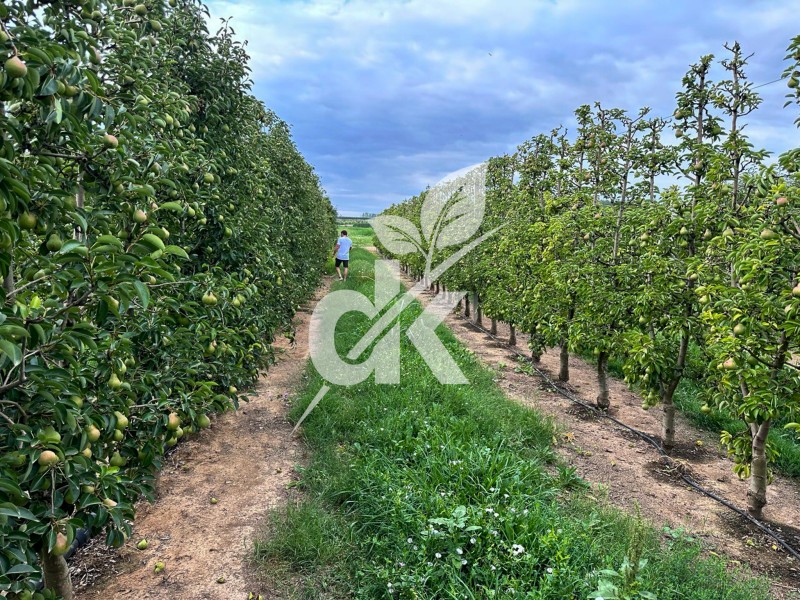Weed Control in Orchards
In fruit orchards, weeds, especially in summer:
- Create water competition and increase irrigation needs,
- Consume nutrients and weaken tree growth,
- Act as hosts for pests and diseases (especially aphids, red spider mites),
- Increase labor costs during harvest.
In Turkey’s Aegean and Central Anatolia regions, Western Asia (e.g., Iran, Iraq), and North Africa (e.g., Morocco, Tunisia), weed growth accelerates with summer heat. Therefore, August is a critical period for effective control in orchards.
- Turkey: At summer temperatures of 35–40 °C, especially in irrigated orchards, weed density increases. The most common species: Amaranthus, Chenopodium, Echinochloa.
- Western Asia: In semi-arid climates, irrigated orchards often face salt-tolerant weeds (e.g., wild grasses).
- North Africa: With summer temperatures exceeding 40 °C, perennial deep-rooted weeds (e.g., Cynodon dactylon – Bermuda grass) pose serious problems.
Weed Control Methods
Cultural Measures
- Mulching: Organic (straw, compost) or plastic mulch reduces water loss and prevents weed emergence.
- Cover crops: Especially winter cover crops (e.g., vetch, faba beans) suppress weed density in spring.
Mechanical Control
- Hoeing and disking: Effective against annual weeds, but frequent summer use may increase water loss in root zones.
- Mowing between rows: Especially in drip-irrigated orchards, it controls weeds without harming trees.
Chemical Control
- Cost-effective for large-scale producers, but dosage and timing are critical.
- In Turkey, commonly used systemic herbicides such as glyphosate should be applied only to target weeds, while protecting tree trunks.
- In Western Asia and North Africa, early applications are more successful due to arid conditions.
Strategic Recommendations
- In August, as harvest approaches, cultural and mechanical methods should be prioritized over heavy chemical use.
- Young orchards: Mulching + mowing between rows is the safest method to protect tree trunks.
- Mature orchards: Controlled herbicide applications can significantly reduce labor costs.
- Long-term: Integrated weed management (cultural + mechanical + chemical) reduces costs and enhances orchard sustainability.




